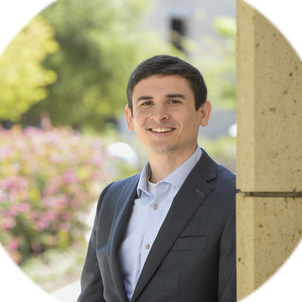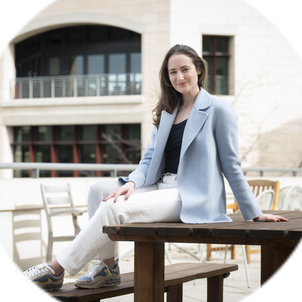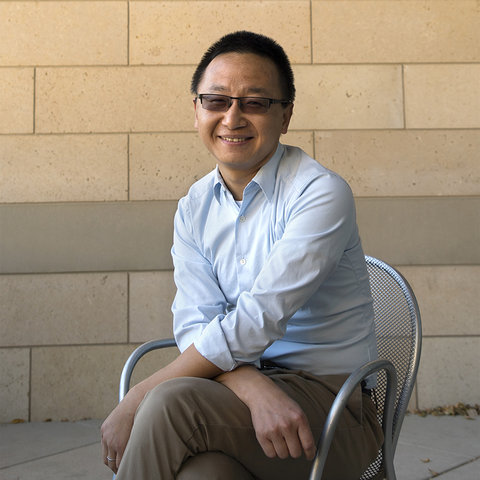It’s fascinating to me that you can have two substances, like an acrylic headlight cover and a door seal in a car, that are composed of very similar molecules, and yet have completely different physical properties. One is stiff and transparent, and the other is soft, black and flexible. This knowledge has the potential to power a wide range of applications.
Using mathematical models, I try to describe and predict how molecules will behave together to create those properties. It’s not so easy to do with a single molecule, but if you look at a large group of them, patterns start to emerge. It’s a little like being a social scientist: You can’t tell much about a culture from a single person, but if you look at a large group of people, you can begin to make some generalizations.
Using math to predict outcomes is something I’m passionate about. In math, there are these natural truths that are kind of miraculous in my mind. They enable you to predict how things will behave. In middle school, I learned about planar geometry and was amazed – pick up any triangular shape and add up the interior angles and the outcome will always be 180 degrees. This certainty begins to unlock a language of logic that can help make sense of many things in the world.
Related spotlights

Thomas Colburn

Kayla Patterson

